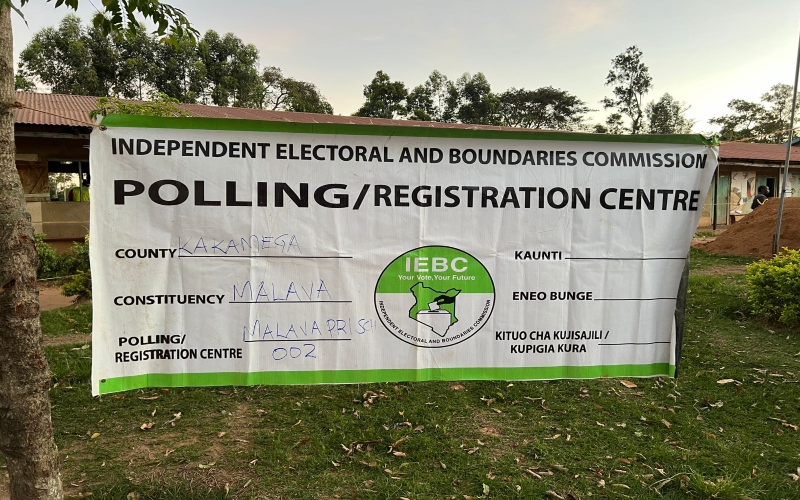Five arrested for impersonating students in ongoing KCSE exams

Education Cabinet Secretary Julius Ogamba condemned the incidents as a serious breach of exam rules that endangers genuine candidates.
At least five individuals have been detained in Nairobi and other parts of Kenya for allegedly impersonating students during the ongoing Kenya Certificate of Secondary Education (KCSE) examinations, just days into the national tests.
Speaking on Wednesday, after supervising the opening of an examination container at the Dagoretti Sub-County Deputy County Commissioner’s office, Education Cabinet Secretary Julius Ogamba condemned the incidents as a serious breach of exam rules that endangers genuine candidates.
More To Read
- KCSE marking starts under tight supervision to ensure fairness
- 2025 KCSE concludes smoothly as government reports sharp decline in exam cheating cases
- Education Ministry pledges early capitation release for smooth start to new term
- 19 KCSE exam cheating cases reported across three regions - CS Ogamba
- KCSE enters third week as government steps up efforts to ensure smooth exams amid floods
- Hundreds of exam candidates stranded by Elgeyo Marakwet mudslides to be airlifted for national exams
“This is a foolish act that threatens the credibility of our national examinations and the hard work of thousands of honest students,” he said.
He said the government has strengthened security measures at examination centres nationwide to prevent cheating and impersonation.
“We will deal firmly with all offenders. Those found impersonating candidates or aiding such acts will be prosecuted without exception,” he warned.
The arrests follow reports of multiple exam irregularities across the country. By Tuesday, 19 people, including exam centre officials, had been detained for involvement in cheating. A special police unit also apprehended five impostors in Nairobi and Kericho, while the Kenya National Examinations Council (KNEC) confiscated 17 mobile phones from candidates in Moyale and Saku constituencies in Marsabit County.
Counties recording the highest number of arrests include Siaya, Samburu, Kericho and Kitui. At Rachar Secondary School in Siaya, five staff members, including the principal, Patrick Omondi, an invigilator, centre supervisor, school secretary and school cook, were arrested. Samburu County’s Moi Girls High School saw three officials detained, while in Kericho County, three impostors were caught sitting exams for other candidates.
Some arrests involved university students. Duncan Kipkemoi Kipkirui, a Kenyatta University student, was apprehended writing on behalf of Aaron Kiptoo Ngeno. Two Kabianga University students were also caught impersonating others. In Nairobi, two candidates paid Sh30,000 and Sh20,000 for impostors to sit their exams at Kongoni South C.
Additional arrests occurred in Kitui, Nyamira and Bungoma counties.
In Marsabit County, nine students were caught using mobile phones at Sessi Mixed Secondary School, and eight private candidates were arrested in Saku. Authorities allowed the students to continue with exams pending investigation.
Ogamba stressed that the government will not spare anyone involved in malpractice, noting particular concern over officials implicated in cheating.
“The saddest thing is when I receive a report that someone involved in exam malpractice is an officer from the ministry or a school principal. These are our own people. But we have no choice, they must be arrested and charged,” he said while overseeing KCPE exam preparations in Matuga, Kwale County.
He urged all education officials to maintain the highest standards of discipline and professionalism, emphasising that the integrity of the 2025 KCSE examinations is non-negotiable.
The KCSE exams, which began on October 21 with oral and practical papers, will conclude on November 21. More than 900,000 candidates are sitting for the tests under tight supervision, with special arrangements made for learners in areas affected by mudslides and floods in Elgeyo Marakwet County.
Ogamba also highlighted ongoing government efforts to improve education quality, including timely disbursement of capitation funds, equitable resource allocation and a nationwide audit and rationalisation of schools.
“The rationalisation exercise is not intended to punish teachers or school heads, but to streamline operations and strengthen the overall education system for better service delivery,” he said.
He reassured students that all learners will continue to be accommodated in the education system, citing the competency-based curriculum as a tool to allow every student to progress according to their skills and interests.
“The future of our learners depends on honesty and discipline. We must protect the integrity of our education system at all costs,” Ogamba said.
Top Stories Today
















































